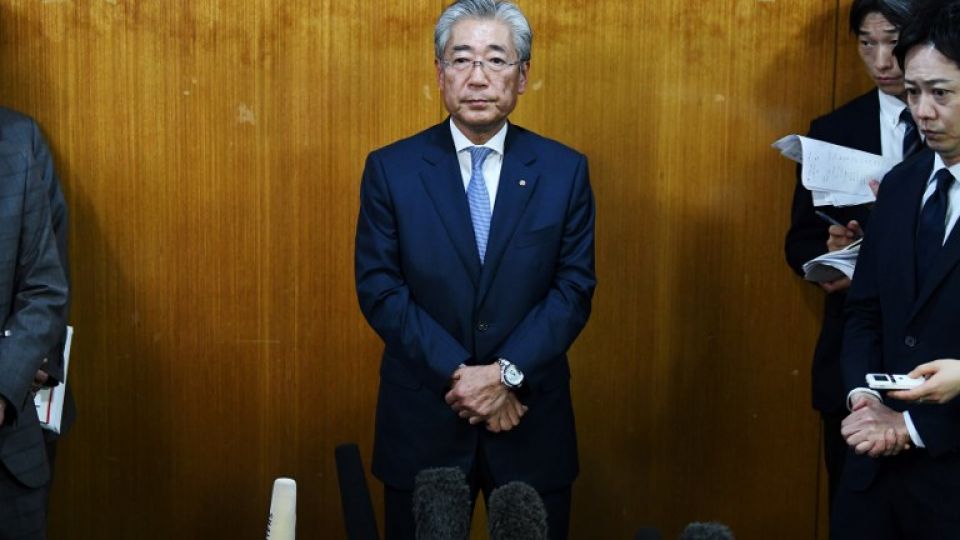March 21, 2019
The head of Japan’s Olympic Committee said he would step down, as French authorities probe his involvement in payments made before Tokyo was awarded the 2020 Summer Games.
Japanese Olympic Committee chief Tsunekazu Takeda’s decision to step down at the end of his current term comes after the JOC was sluggish in its attempts to deal with his alleged misconduct, according to observers.
The driving force behind Takeda’s move was a gradual change in the International Olympic Committee’s stance toward his case, due to concerns that the issue could tarnish the image of the Olympic Games.
On Tuesday, Takeda, 71, said he plans to resign when his term as JOC president ends in June. The JOC will now have to reorganize itself in preparation for the 2020 Tokyo Olympics and Paralympics, an unusual move one year prior to an Olympic Games.
Takeda also said he intends to resign as an IOC member.
Takeda is under investigation by French law enforcement authorities in connection with alleged corruption tied to Tokyo’s bid to host the 2020 Games. He is likely to continue to maintain his innocence in connection with the case.
“If [JOC] President Takeda was indicted by the French authorities and found guilty in a trial, it would be one thing … but I never expected he would have to resign while still presumed to be innocent,” a senior JOC official said. Within the JOC, it had been a matter of faith that Takeda would stay on after his current term expires.
Takeda was named an IOC member in 2012. In principle, the retirement age of IOC members is set at 70. However, the IOC decided at a general meeting in 2017 to postpone Takeda’s retirement, in the hopes of supporting the Tokyo Games under its current structure.
However, when reports surfaced in January that French authorities had questioned Takeda in December last year, the IOC began to shift its stance on the issue, according to a source associated with the Tokyo Games.
“The IOC goes cold on anyone it thinks may adversely affect the Olympics,” the source said.
Officially, the IOC said it would watch to see how the affair developed while standing by the principle of the presumption of innocence. However, the IOC conveyed a message to Takeda through a related organization to sound him out on whether he would step down, the source said.
Meanwhile, the JOC showed little urgency over the matter as the course of events moved toward Takeda’s eventual departure from the committee.
He came under fire both at home and abroad for failing to offer appropriate explanations regarding the misconduct allegations. He also skipped various IOC and other international conferences. All of this was seen as problematic, according to observers.
The JOC was a step behind in its attempts to deal with the affair. For example, it was considering whether to revise its regulations on the retirement age of JOC officials to make them compatible with pertinent rules in the Olympic Charter. The current JOC regulations require committee officials to be under 70 at the time of their election to the position. Meanwhile, the charter states IOC members must belong to the executive organ of the national Olympic committee from which they come.
At a meeting of the JOC Executive Board on Tuesday, board member Kaori Yamaguchi said, “Why wasn’t the retirement age issue discussed at an earlier board meeting?”
Takeda’s departure leaves Morinari Watanabe, 60, president the International Gymnastics Federation, as the only Japanese member of the IOC. However, the IOC has maintained good relations with the Tokyo Games organizing committee, and few think Takeda’s resignation will adversely affect the management of the 2020 Olympics.
However, some are concerned the image of the Olympics could be further undermined, and that there could be delays in training athletes due to the reorganization of the JOC, according to observers.Speech


